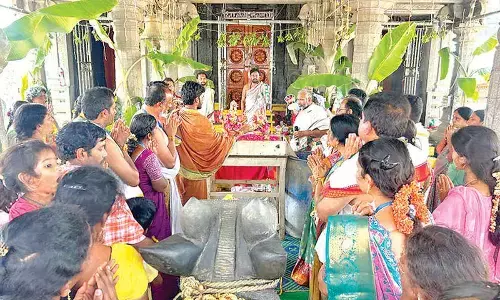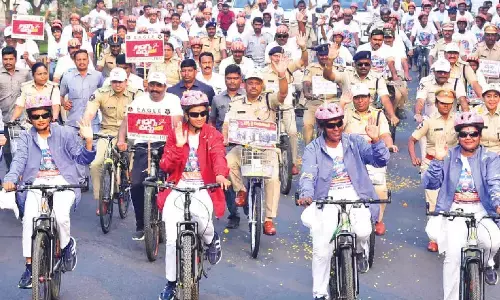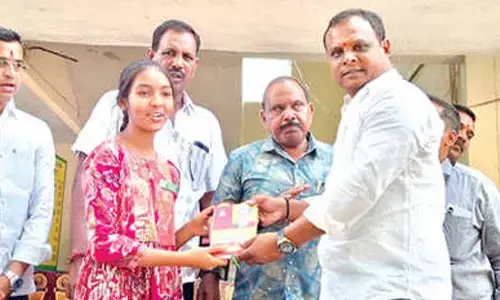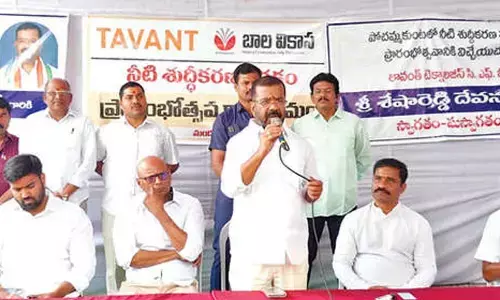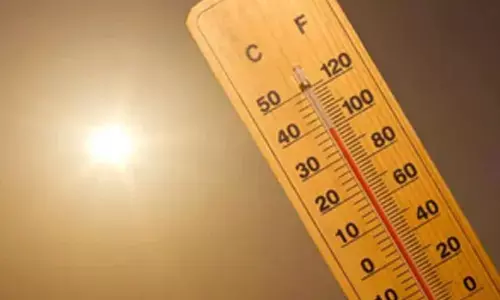Official indifference makes tribals see red
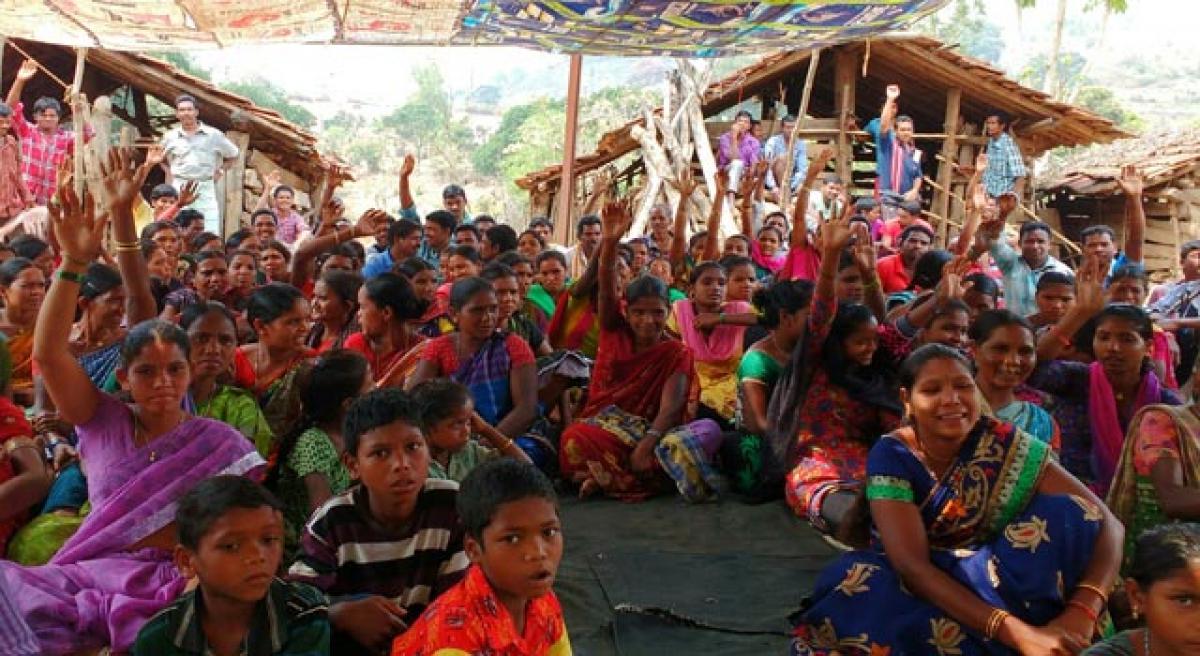
Tribals constitute for 14.4% of the population of Visakhapatnam district, which is the highest in Andhra Pradesh state. The agency areas of Visakhapatnam include 11 mandals of the total 43 in the district.
Tribals constitute for 14.4% of the population of Visakhapatnam district, which is the highest in Andhra Pradesh state. The agency areas of Visakhapatnam include 11 mandals of the total 43 in the district. Out of the 33 communities recognised by the Government of Andhra Pradesh as tribals, 12 of them are considered PVTGs (Particularly Vulnerable Tribal Group), as these tribal groups were still hunterers-gatherers by the time the first classification of tribals took place, unlike other tribals who were already into settled agriculture by then.
In the agency areas of Visakhapatnam, the Kondhs are considered as PVTGs along with Kondareddis, Chenchu and Gadaba tribes. The Kondhs are one of the largest tribes in the Visakhapatnam agency area and are spread over 200 villages in Chintapalli and G Madugula mandals alone, from where this report is based.
Some of these villages including Tamarapalle, Nittamamidi, Vasamamidi, Jarrai and Seetabandha had no address till 1991, when the then Sub-Collector of Narsipatnam brought them into Census enumeration for the first time. Till 1991, the only government department the tribals knew was the forest department because forest officials used to raid the houses of tribals for chicken and money and file cases against them for trespassing into ‘forest land.’
The Kondh tribals in the scheduled V areas of Visakhapatnam migrated from the forests of Odisha right after independence. They were displaced because of the Hirakud dam as well as a host of other cement factories and power projects. They have been living in the forests of Visakhapatnam ever since. Kondhs speak the Kuyyi language, which is very close to Odiya. Over the time, they however learnt to speak and understand Telugu.
Most of the tribals depend on agriculture in the forest and grow paddy, maize, millets, coffee and turmeric amongst others. More than 10 years after the Forest Rights Act, 2006 has been passed, the implementation of the same is dismal. Andhra Pradesh Girijan Welfare Boards’ own statistics as of 4th November 2016 say that only 7,500 of the total of 1,50,488 individual claims have been given pattas while only 1,216 of the total of 4,410 collective claims were given pattas across Andhra Pradesh.
The irrigation facilities in the forest lands were minimal with almost all the lands being rainfed. Despite the possibilities of the construction of small check dams across rivulets like Pedderu, the government seems to be only concerned with big structures and major irrigation dams which would submerge hundreds of tribal villages and alienate thousands of acres of forest land.
The villagers of Tamarapalle village in Chintapalli mandal listed out the problems they had faced over the last financial year with the non-implementation of MGNREGA. Killo Nageswara Rao says, “We have completed the stipulated 100 days per family as early as November. But, we were not given 150 work days as mandated in the Act for SCs and STs.” According to the act, a major who gets married should be considered a ‘family.’
However, complaints are galore about how new jobs cards are not being provided for newly married couples and how they are being considered as members of the ‘parent family.’ The Kondh tribals showed copies of the muster records and reported certain instances when they worked for more than 100 days but were paid money only for 100 days. The officials always have a reason to get away with. Sometimes, as trivial as the reasons being ‘technical fault’, which no tribal labourer would ever understand.
Vasamamidi village of Gaduthur Panchayat in G Madugula Mandal was lighted up for the first time in March 2016 using solar panels. However, the villagers complain that the solar panels have not been working for the past two months and that the government officials just want to strike off the village from the check list to show 100% electrification in Andhra Pradesh. The population of this village is around 300 spread across 60 households. They go to Jarrai, which is a kilometer downhill, to charge their mobile phones.
The tribals in this village have never used a fan or a tube-light. Some men from the village went to district headquarters Visakhapatnam once or twice, but not a single woman has been there. There isn’t a motorable road to this village and the easiest you can get there is after a 10 km trek from Tamarapalle, which will take a little over a couple of hours. “The old people in the village need to walk 15 km, up and down three hills, just to collect their pension of Rs 1,000 from the Gram Panchayat Office in Gaduthuru,” says Gimmela Apparao.
“This path gets closed during the rainy season as the Pedderu rivulet overflows with the rainwater from up-hills and we are left stranded for months together, often without pension,” adds his wife Kusuma, who had no clue what her age is. You will get puzzled looks from everyone in the village when you ask them their age.
The closest ration depots are in Gaduthuru and Jajulapalem, both of them equally far and are opened only 3-4 days a month. PS Ajay Kumar, a veteran APVVU activist based out of Anakapalle, says, “We have demanded that the ration depot be opened at least 20 days a month and have submitted several memorandums and petitions to the government officials, but in vain. The problem arises when the policies which are designed for plain areas are applied directly for the tribal (hilly) areas without altering them to suit the terrain and the context.”
According to a May 2003 Supreme Court Judgment on PTGs (now PVTGs), the primitive tribal groups (PVTGs) are supposed to get 35 kg of rice on the Antyodaya Anna Yojana Card irrespective of the number of members in the family. However, at least half of the tribals allege that they receive neither the stipulated 35 kg of rice nor wheat nor the required kerosene.
The tribals petitioned the ITDA PO Paderu, Sub Collector, Narsipatnam, and the Collector, Visakhapatnam, many a time under the leadership of APVVU but hardly any steps were taken. Since this is a clear violation of the Supreme Court orders, the tribals are planning to explore ways like petitioning the Chief Justice of the Supreme Court on this issue in particular.
By Rahul Maganti


